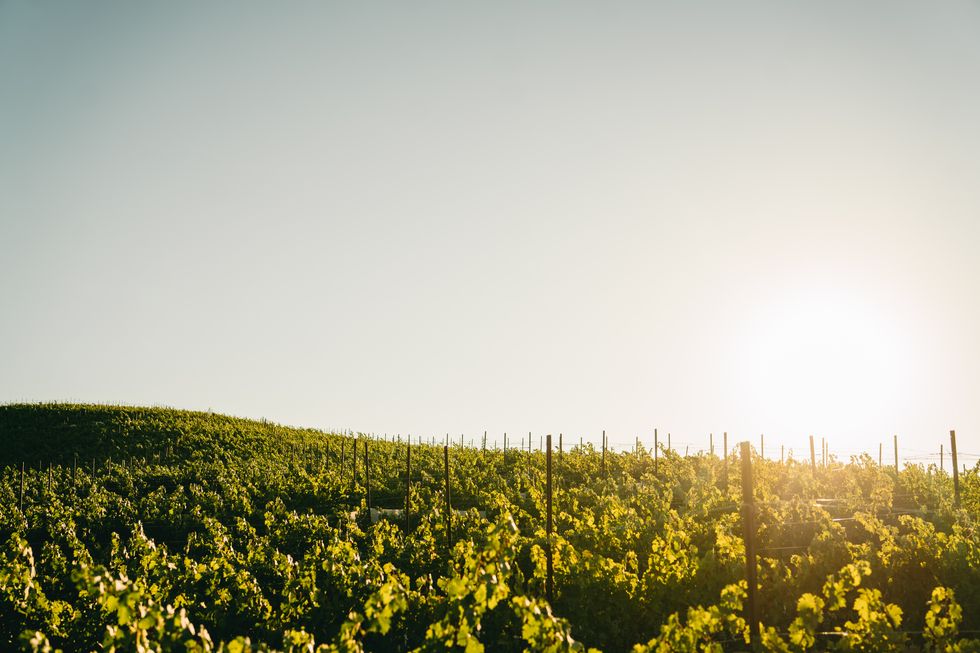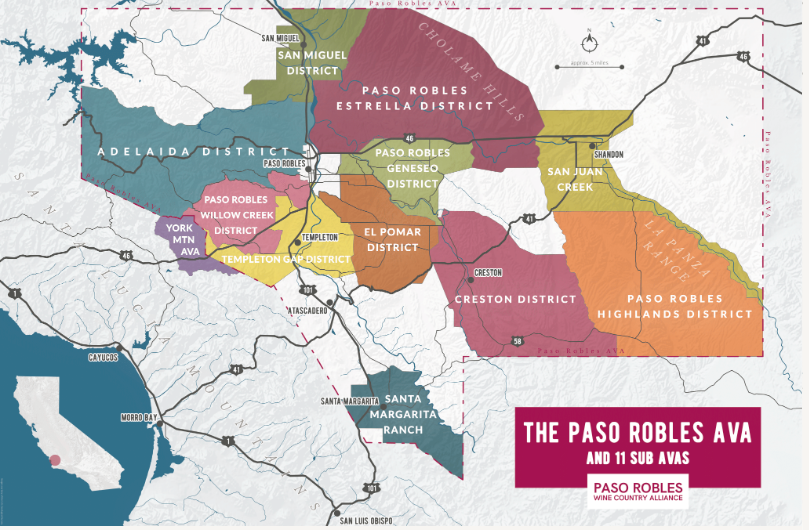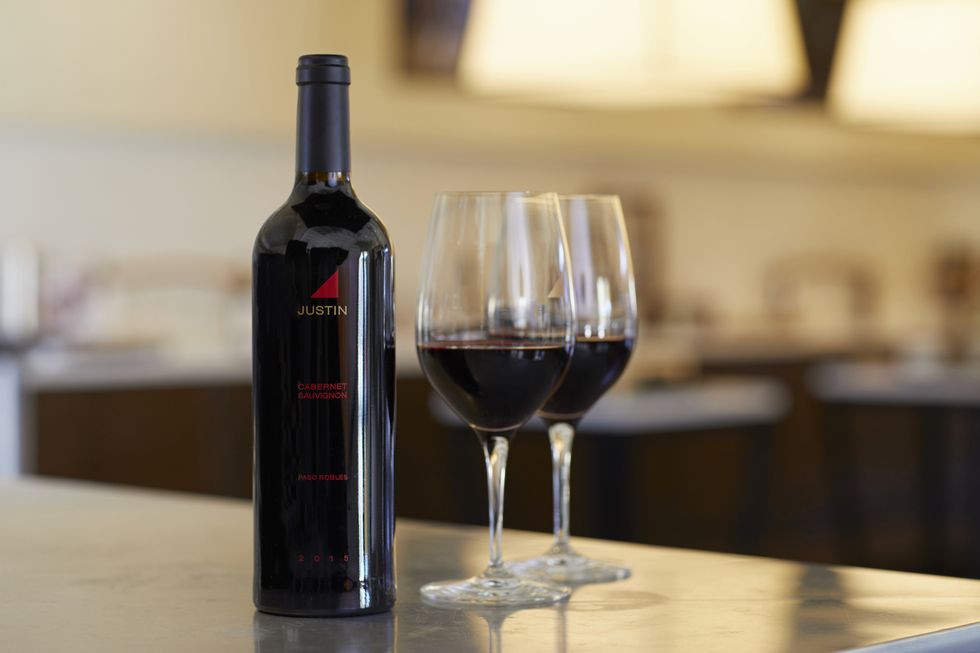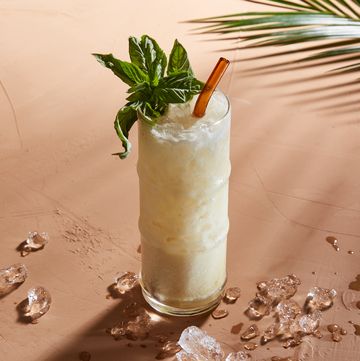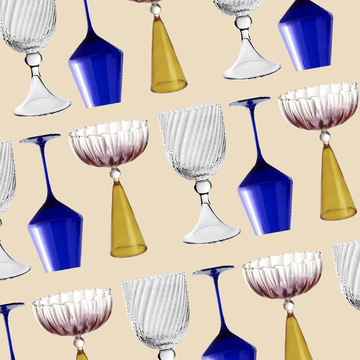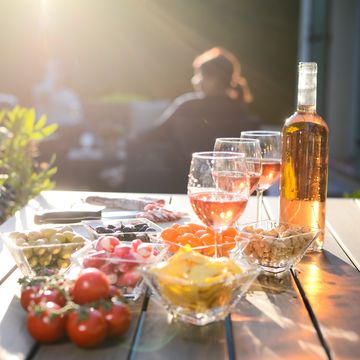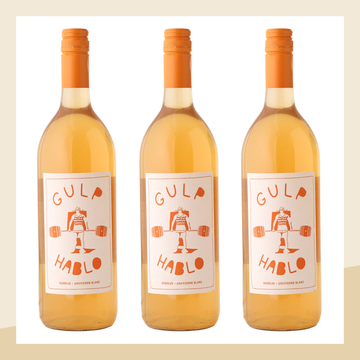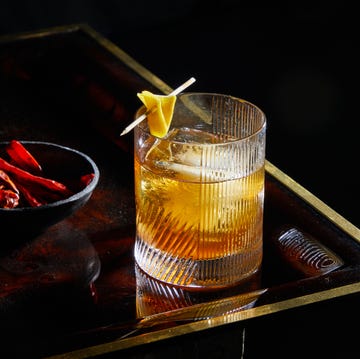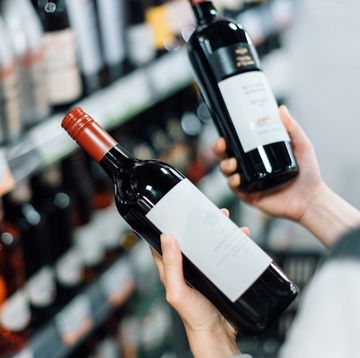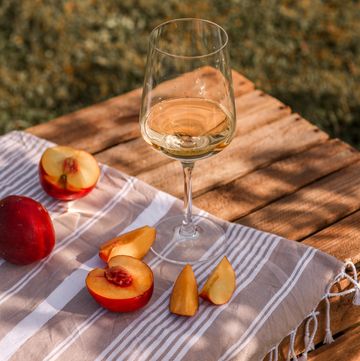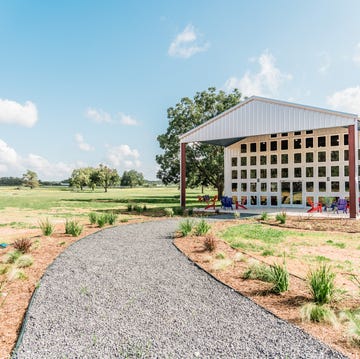When we think of top California wineries—or about California wine country in general—names like Screaming Eagle, Dominus, and Opus One may come to mind, and thus Napa and Sonoma. But after an eight-year mission to find the best soil and climate in California, brothers Daniel and Georges Daou found both in the Central Coast's Paso Robles.
"If anybody told me 10 years ago that a high-end Cabernet Sauvignon from Paso Robles would outsell every high-end Cab from Napa besides one for two years in a row, I would have laughed at them," says Daniel Daou, half of the brother team behind DAOU Vineyards and Patrimony Estate. Data from Nielsen from a new offering created for wine suppliers, importers, distributors, and retailers shows that DAOU Soul of a Lion, the flagship wine of DAOU Vineyards, has outsold all but Opus One for the last two years, and the label's $24 Reserve Cabernet Sauvignon is the top-selling varietal in the luxury category in the country.
"Is this because we are great marketeers? No, not at all," says Daou. "We don't do any marketing, and even if we did, you can convince someone to buy a bottle of wine once, but you can't convince them to keep buying it. They have to really love it. Something is clearly happening that is changing the California Cabernet industry, and we have the most superior terroir for Cabernet Sauvignon, not just in California, but worldwide."
More From Veranda
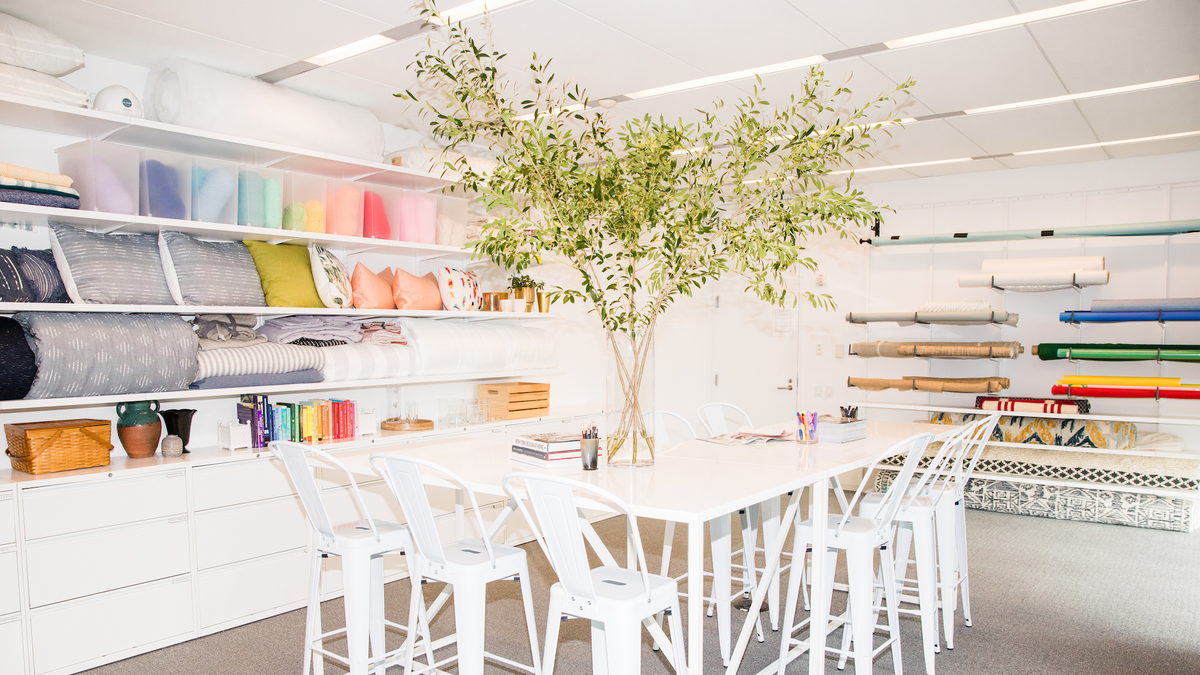
What Is Terroir?
The term "terroir," is quite the buzzword in the world of wine today, and it's actually a French term that encompasses the total environment where a wine is produced, from the soil to the terrain to the climate. And Daou says that the terroir where your grapes are grown is the most important aspect of making a truly great bottle of wine.
"There's a kind of soil that goes back thousands of years as the most sought-after for planting vines," says Daou. "The Ancient Romans looked for this type of soil to plant their vines and you can even trace it back to the Phoenician and Persian empires."
This type of soil is called calcareous soil, and it's sought-after for it's unique make-up of both clay and limestone soils. This is the type that resides in nearly every major Old-World European vineyard, from Alsace to Tuscany. You won't find it in California, however. Or so most people thought.
Finding Perfect Terroir in Paso Robles
The Daou brothers are living a true American success story. Born in Lebanon and raised in France, the pair arrived to the U.S. with about $20 to their names. Growing up, their father had a passion for wine upon moving to France and it transferred to Daniel and Georges, but they were too busy figuring out how they were going to support not only themselves, but their parents, who were planning to immigrate soon.
After learning English, the brothers graduated from the University of California at San Diego where they studied computer science. They had a bright idea to start a company that computerized hospitals in the '80s. Needless to say, it really took off. After ten years, the brothers retired from the business, and that desire to pursue winemaking finally felt like it could be a reality. The following eight years were committed to finding the perfect place to produce wine as naturally and simply as possible. The brothers wanted the wine to be powerful, but not at the expense of sacrificing elegance.
"My thought on this was simple: no one in France was ever commissioned to go search the world to find the best place to grow grapes; Bordeaux was just a perfect place to grow grapes in France," says Daou. "So, I started thinking, if such a place did exist, what would it look like? It was all about soil and climate, and those two things, if found in the right place, could really help us do something unique." After nearly a decade of hunting for calcareous soil and the perfect climate, the brothers didn't end up in Napa, Sonoma, or even Santa Barbara. They found their home in Paso Robles.
The Soil
Here, the brothers discovered soil like they'd seen nowhere else in California that had both essential elements of clay and limestone to produce Bordeaux-caliber varietals. The clay in the soil impacts bouquet, nose, and color, which gives Bordeaux wines their density and texture, and thus, superiority. But the limestone is what really makes wines from this region stand out—something that the vast majority of California doesn't have.
"Limestone soil provides three things you rarely find in California wines, which is why most California wines are not widely accepted in Europe or Asia," says Daou. "Limestone gives acidity, minerality, and earthiness while the soils you find in California don't usually provide that and have a more jammy character to them."
Even more important is that limestone soil allows one to make a wine naturally without having to add tartaric acid, sugar, or color. It also means that the wine doesn't need to be high in alcohol to really stand out.
Limestone subsoil is also a major benefit to winemakers in light of climate change. This type of soil is one of the only kinds that allows for dry farming—meaning the vines can survive without water—which is what made them so desirable for the ancient empires (and later the French and Italian kingpins of the wine industry) that lacked the tech and resources we have today.
"We basically found European soils in the heart of California, and the only large presence of these is on the west side of Paso Robles, where the winery is located," says Daou.
The Climate
Paso Robles often gets a bad rap for being insanely hot, but Daou says that's akin to saying that you've been to Carneros in Napa, where it's chillier and only sparkling wine can really be made there, so you tell everyone that Napa is chilly and you have no idea how they make Cabernet Sauvignon.
"Paso is 614,000 acres, which is larger than Napa and Sonoma put together, says Daou. "And it's five times the size of Bordeaux. You can be seven miles from the ocean, and it's so cold that you can't grow grapes at all or you could go 35 miles inland and it's so hot that you don't want to be caught alive—or dead—there. Where our winery is located, it's the only vineyard in the entire state that's at a 2,200-feet elevation, and it's only 14 miles from the Pacific. That doesn't exist anywhere else."
While there are a few areas in Sonoma with similar metrics, there's nothing else in the state exactly like the Daou's vineyards. In fact, they say there's no where else on the planet with this type of terroir, which lends to them being able to make wines that are noticeably different from what else is on the market.
Creating World-Renowned Wines on the Central Coast
Daou says it's important to think of wine as a living organism, not just some product you buy in a bottle. It has a certain balance to it and if you start adding acid, colorant, sugar, and go heavy-handed on the alcohol, the balance never recovers, leading to wines that have a bit of a bite to them or leave a scratchiness in your throat. This is why finding the perfect soil and climate was paramount to the brothers. According to Daou, the soils they work with are the only ones that allow them to make a Bordeaux-style wine in a more Mediterranean climate like California without any acidulation (the addition of acid). Besides organic yeast, it's just grapes and a bit of Paso Robles magic.
"First of all, these wines have minerality, they have a freshness and elegance because of the soils we have," says Daou. "When you taste them, you get crushed stones and violets—something you won't find in other California wines. We really combine the best of both worlds: the minerality and earthiness of European wines with the wonderful climate of California that allows us to achieve ripeness year after year."
Daou, a self-professed tech nerd, has harnessed data and analytics to measure the quality of his wines that go beyond the ratings from top wine critics (although theirs are pretty impressive, too). His team analyzed the phenolics: the color, smell, and taste which directly impact tannins, aromas, and overall superiority of a wine. They also looked at the way that each of these three components compared to each other in terms of balance. Daou's team measured more than 700 Cabernets from the best Bordeaux wine regions in the world, and he says that nothing comes in within 30 percent of what they make. Thankfully, he can back that up with ratings from names like Jeb Dunnuck, Robert Parker, and others—as well as the praise from merchants and consumers from all over the world.
Building a Legacy
After having smashing success with the DAOU Vineyards label, Daniel says that he noticed a few rows on a block of vineyards that "looked amazing." He experimented with making wine out of that specific section of rows and was blown away by the results. The brothers decided to bottle the wine on its own with the name Patrimony Estate, which became an instant hit. The wine sold out in five weeks and accumulated a three-year waiting list.
The ultimate seal of success was that within two years, many of the team members at Napa's ultra-prestigious Opus One winery approached the Daou's about coming on to work for them because they believed Patrimony Estate would revolutionize California Cabernet. And out of the 30 wines the Daou's have submitted to Wine Advocate, 21 of them received ratings of 96 or higher.
"People often ask how we make these wines, and I tell them that I really don't know," says Daou. "I just trust my palate, and we are fortunate that the terroir is amazing, which makes my job a lot easier. As long as people love the wine, we will be happy with it."
The name Patrimony Estate comes from the brothers' desire to create a legacy for their family. Daniel has five children, four of which are in wine, and two of which are already planning to join him in the family business. He hopes that Patrimony Estate doesn't just leave a legacy for the future Daou generations but for Paso Robles as a wine region. Lucky for the Daou brothers, their legacy is unfolding right before their eyes, with Patrimony Estate becoming world-renowned—a major first for California Cabernet. And a revolution has sparked amongst the wineries in Paso Robles who are working hard to bring high-end wines to the market and further cement the region's rising status as a worthy competitor, not just in California, but in the world.
Other Names to Know in Paso Robles
Local icons like JUSTIN, Adelaida, L'Aventure, Sculpterra Winery, Calcareous Vineyard, and Tobin James Cellars are just a handful of the names in Paso Robles that are getting the spotlight they deserve for making spectacular, high-end bottles. Other top names include Epoch Estate, Jada Vineyard, and, possibly the widest-known of the bunch, J. Lohr.
While this region is more rustic and quiet than the Napa Valley, Daou says it feels like how much of California looked like a century ago and isn't worried about proving itself, because it will as soon as the consumer or critic or merchant tastes the wine. The authenticity, uniqueness, and surprising elegance is not only what makes the wines of Paso Robles great, but what makes the region as a whole a special place for wine enthusiasts to watch in the coming years.
Lauren Wicks is a Birmingham-based writer covering design trends, must-have products, travel inspiration, and entertaining. She’s obsessed with globally inspired textiles, hosting dinner parties, and French cocktails.

